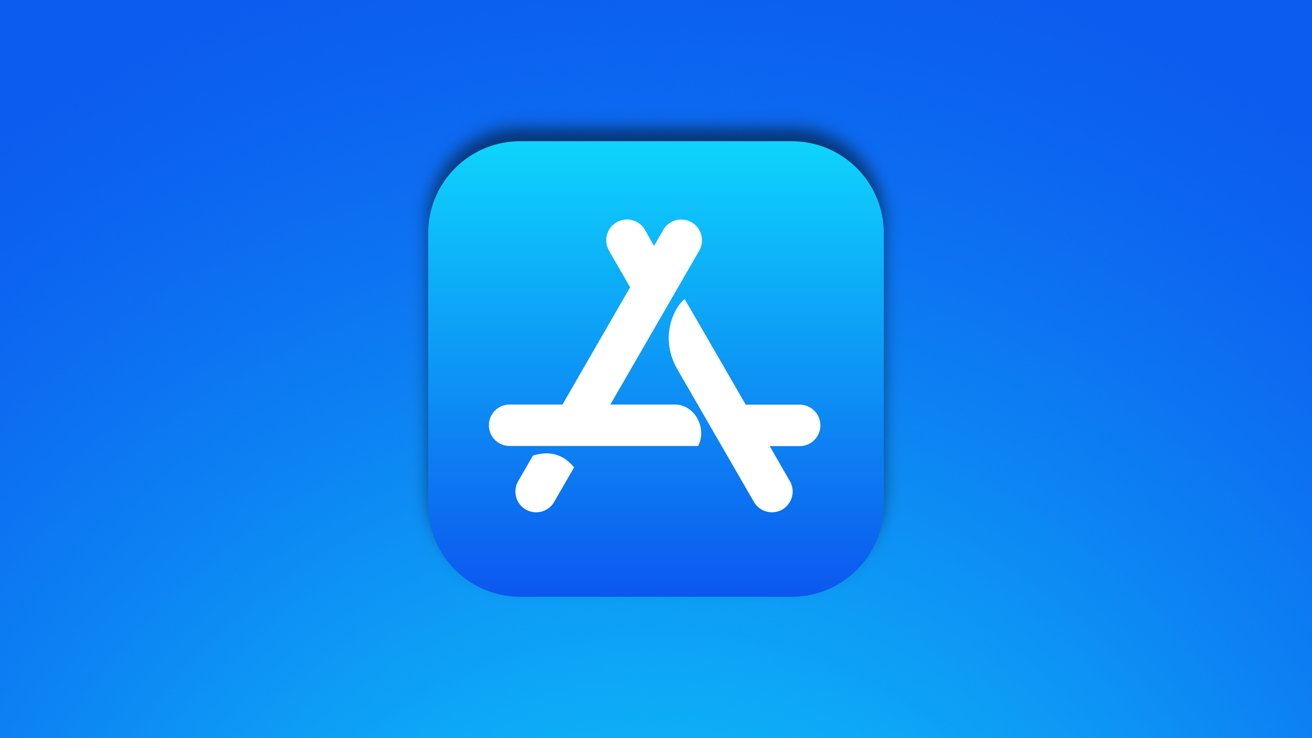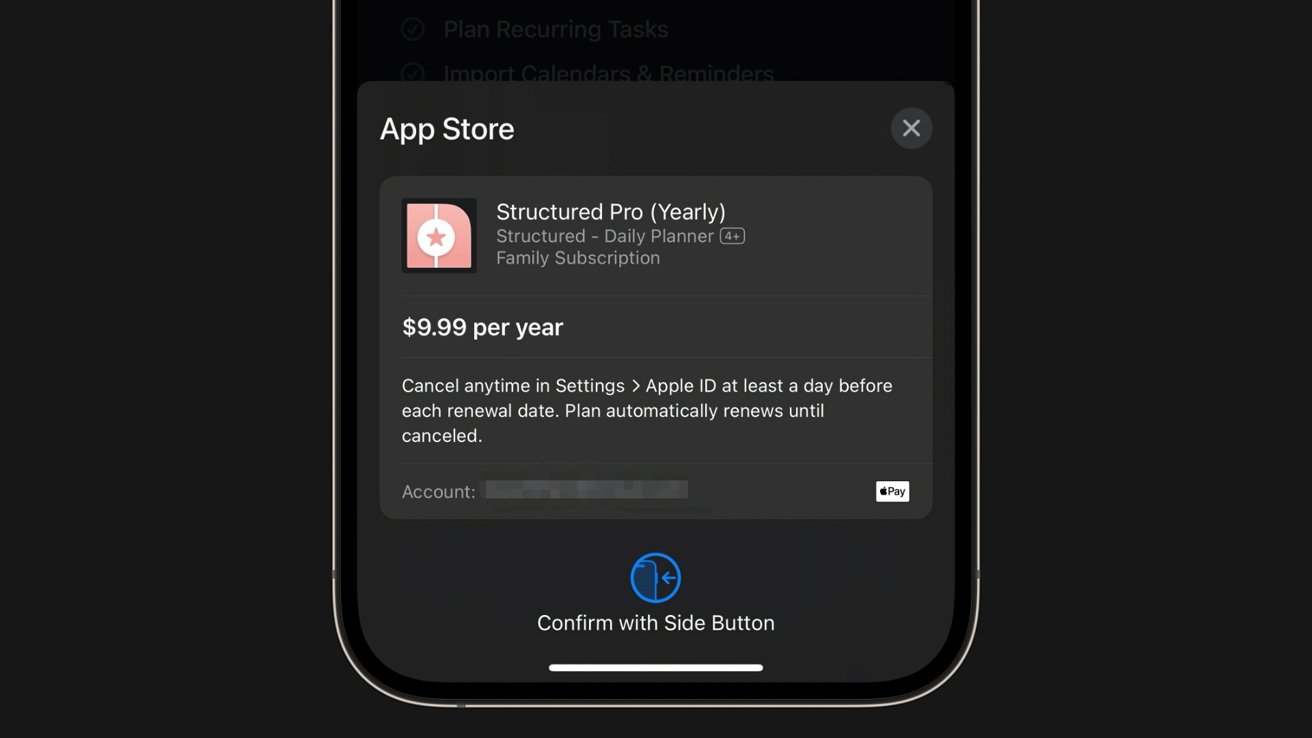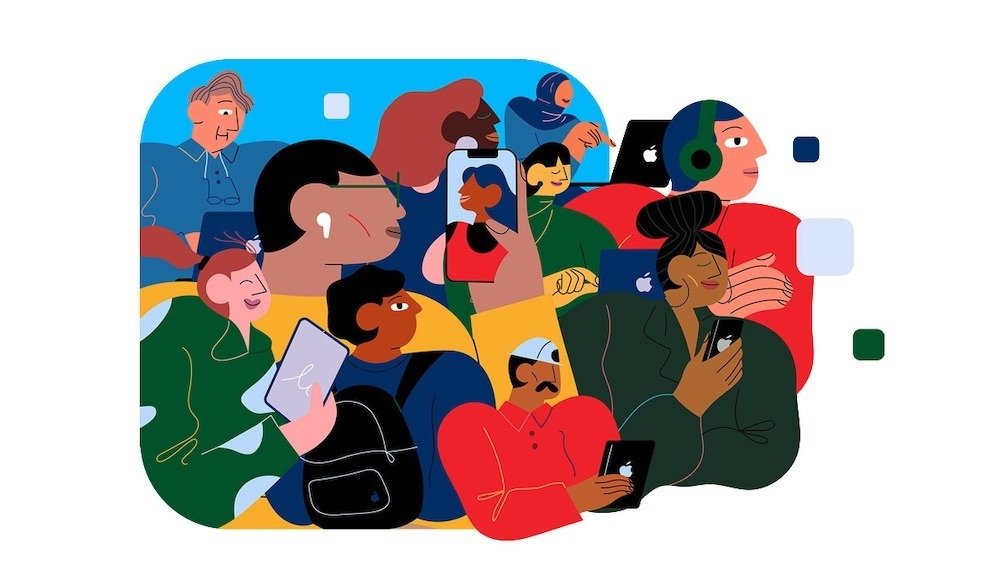Apple's App Store anti-steering rules are gone, but the replacement isn't much better
Third-party app developers now have a method to push users to external purchase options, but with enough caveats that the in-app option may be preferable.

Apple App Store icon
Apple's case against Epic has finally concluded since the Supreme Court refused to hear appeals from either company. That means Apple must comply with the one ruling it lost against Epic -- to remove anti-steering guidelines.
According to two filings Apple made with the United States District Court, obtained by AppleInsider and embedded below, Apple will allow developers to point out external purchase options for in-app goods or services. However, there are many stipulations to this practice.
There are two guidelines the Epic ruling is overturning. Guideline 3.1.1 prevented apps from directing customers to alternative purchase mechanisms outside of the app. Guideline 3.1.3 prevented developers from communicating with users outside the app with contact information obtained within the app.
No more anti-steering
Starting January 16, developers can apply for an entitlement to provide a link within their app to a website the developer owns or is responsible for. The entitlement can only be used for iOS or iPadOS apps in the United States App Store.
Link Entitlement allows developers to steer customers to alternative options via app buttons or links with calls to action. Getting the entitlement requires direct approval after an application process, and any third-party payments made for in-app content must be made with a Level 1 PCI-compliant source -- which may eliminate cryptocurrency as a payment method.

Developers can't interrupt this purchase flow to offer external options
Developers must prove goods purchased via the external app link are for in-app use. They also must provide methods for disputing unauthorized transactions, managing subscriptions, and requesting refunds.
Apps participating in the Apple Video Partner Program or the News Partner Program are not eligible for Link Entitlement. Abuse of the entitlement or spamming users could lead to being kicked from the Developer Program and removal from the App Store.
Link Entitlement doesn't mean no more IAP
Developers hoping to avoid Apple's 30%/15% commission by removing in-app purchase (IAP) options altogether will be disappointed. In order to use the Link Entitlement, IAP must remain within the app.
Also, developers cannot discourage users from using IAP. The call to action can mention that customers can save money by going to an external payment option.
The external link can only appear once within the entire app, but not as a pop-up or modal window. That can be during onboarding, sign-in, or on a special order screen.

Epic wanted to avoid IAP altogether, which still isn't an option
The external link cannot appear as a part of the IAP flow. This means the developer can't initiate an IAP when a user clicks on a token or in-app item and then show the link as an alternative to the IAP.
When offering the external link, developers must also include a "system disclosure" sheet. This is basically a scare sheet warning users that they are leaving the app, opening an external browser, and no longer transacting via their Apple account.
External links cannot contain redirects, cannot open in an in-app web view, and can't contain tracking parameters. The link must open to the device's default browser.
The App Store information page cannot contain information about external purchases or reference the external website.
The website must not mimic Apple's IAP system with a similar UI or dialog. Apple's guidelines for external purchases are meant to minimize fraud, scams, and user confusion.
Apple still gets its commission on external purchases
Apple's often criticized 30% or 15% take from developers isn't going anywhere. For anyone using the Link Entitlement, those percentages drop, but not by much.

Apple's Small Business Program reduces commission to 15%
If a user clicks the external link to the developer's website and purchases in-app content, a 27% commission is due to be paid within seven days. Developers eligible for the App Store Small Business Program will be charged a 12% commission, and second-year subscriptions will also be charged 12%.
Apple states that these commissions are still due because of the platform Apple provides with the App Store, tools, technologies, services, support, marketing, and customer base. The court's ruling in the Epic case was clear that collecting commissions was neither a violation nor an issue.
The seven-day provision exists as Apple sees it as sufficient to pay commissions on purchases. The company will be monitoring the system and make adjustments if issues arise.
Going around Apple is still possible
Note that outside communications are still allowed. Apple won't collect commissions on products sold outside of the Link Entitlement workflow.
If a customer purchases tokens, costumes, or other in-app products without navigating via the in-app link, no commission is owed. That means developers communicating over email or online advertising is still free game for commission-free sales.
Apple's limitations and continued collection of a commission will likely light new fires for litigation opportunities. At the least, with these provisions, we can say the Apple vs Epic saga has concluded -- for now.
Apple - Statement of Compliance by Mike Wuerthele on Scribd
Read on AppleInsider

Comments
- Hosting
- Bandwidth
- Technical support
- Xcode and all the other developer tools
- Apple-developed frameworks
All of that for only $99 a year, a rate that hasn't changed since the App Store opened 16 years ago. If Apple is at some point forced to stop charging a commission, prepare for that to increase and potentially have itemized billing. Per-gigabyte bandwidth charges will add up very quickly for popular apps that are hundreds of megabytes or more, as well as monthly per-user licenses for Xcode.They’re not doing anything illegal but they’re also not going to make it easy for companies wanting a free ride.
Well played Apple, well played.
The stores in your local mall pay rent — they don’t get to use the facilities and convenience et al of the mall for free. Developers using the App Store won’t get to use it for free either, which is why we’ll likely never see Epic let back in (to either the Play Store or the App Store).
You've always been able to buy Fortnite currency outside of iOS, Apple don't prohibit that.
as for me, the link will just be litter on the screen, to be ignored.
And most of that laundry list of crap you mentioned is either of nominal cost or not worth the 15-50% a developer pays Apple:
- Hosting and bandwidth - practically free these days - For an app earning $100k a year it certainly doesn't cost $15k to host a store. Maybe $50 a month.
- Tech support - Seriously? Apple's tech support is limited to 2 incidents a year, and is basically worthless. Nothing is ever resolved.
- Xcode - Another hot piece of garbage - bug riddled junk that could easily be replaced with a third-party tool if Apple allowed it.
- Frameworks - this doesn't make much sense. If Apple didn't offer frameworks, no one would be able to develop any apps. The existence of third-party apps benefits Apple just as much as developers. Would anyone buy an iPhone if there were no third-party apps? Nope! Would people be locked into Apple's ecosystem without third-paerty apps? Again, no. Would Apple be able to charge for advertising of third-party apps? I think you get the idea.
The fundamental problem is Apple offers very little (practically nothing) in exchange for the absurd commission. Also Apple treats developers with disdain as if they were the lowest scum on earth.The only real benefit Apple offers is the existence of a large user base to market apps to.
most smart developers will stick with Apple payment . I personally will only engage apps that uses Apple
payment
They want access to Apple Customers. Who gives them that right ? God?
if I walk into target and ask them for access to their customer list , what do you think they will say?
Have a nice day sir.....and sometimes the door hurts on the way out.
You were always able to buy Fortnite currency outside of iOS and you can buy Fortnite game content outside of iOS. My question was what ericthehalfbee meant by eligible.
How small of you.